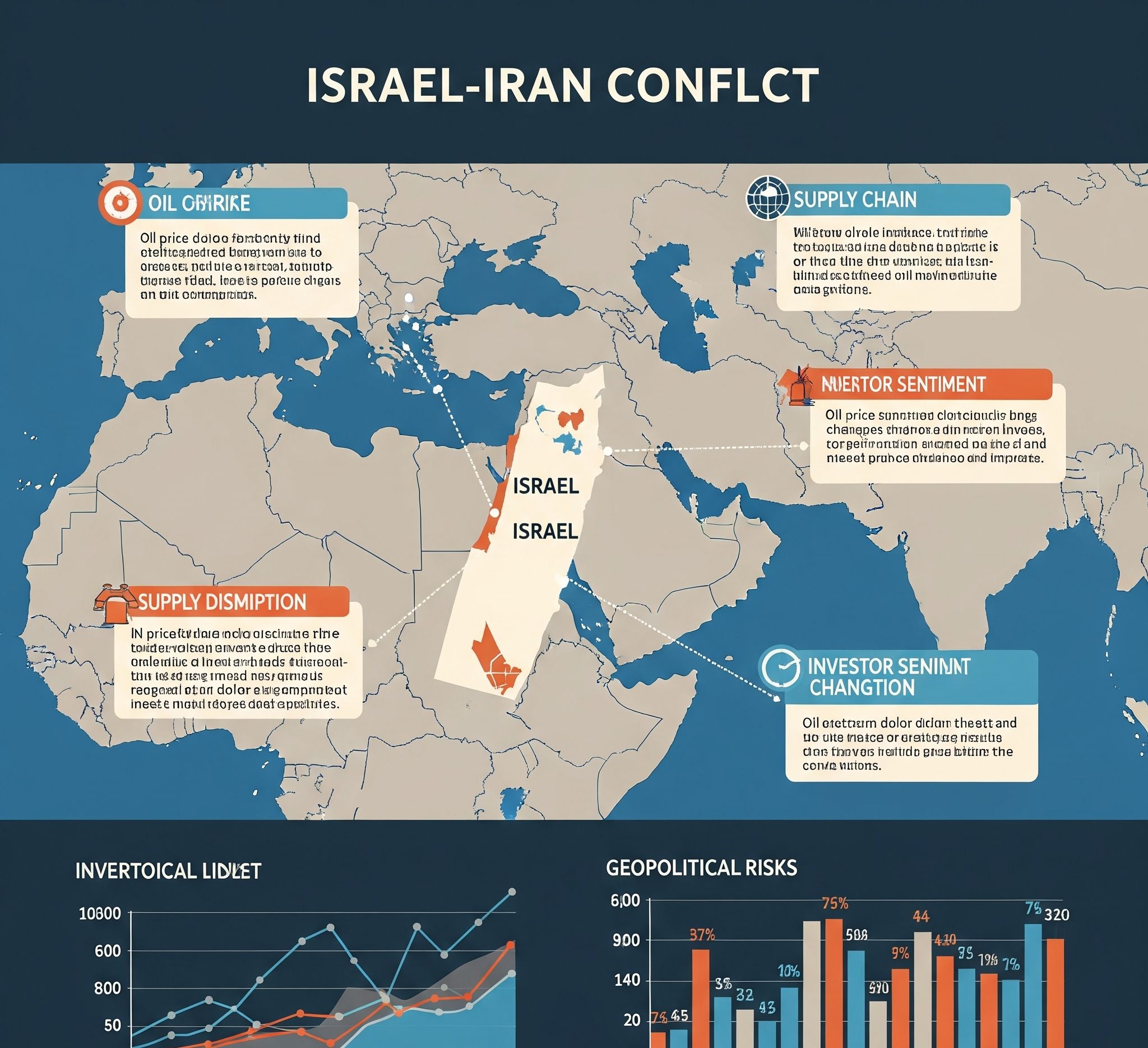The global financial markets are once again facing uncertainty. This time the cause is rising geopolitical tension between Israel-Iran. The conflict is not just a regional issue it has the potential to influence the entire world’s economy. Investors are reacting with caution shifting their money to safe haven assets like gold the U.S. dollar and the Swiss franc. At the same time oil prices are climbing raising concerns for businesses and consumers across the globe.

What’s Happening Between Israel and Iran?
The conflict between Israel and Iran is not new. Tensions have existed for decades. However recent developments have caused the situation to escalate. Military strikes, threats and political statements from both sides have increased fears that the conflict may grow into a larger regional or even global crisis.
This type of geopolitical tension creates fear and uncertainty among investors, governments and businesses. When people are unsure about what might happen next they often make decisions to protect their wealth which can influence markets all over the world.
How Are Markets Reacting?
Whenever there is geopolitical tension the financial markets tend to react strongly. Let’s take a look at how they are responding to the Israel-Iran conflict:
1. Surge in Safe-Haven Assets
When fear rises investors look for safety. Safe-haven assets are those that are considered stable and secure during uncertain times. Right now the most popular safe-haven assets are:
- Gold: Prices of gold have jumped as investors buy it to protect against instability.
- U.S. Dollar: The U.S. dollar often strengthens during global crises because it is seen as the world’s most stable currency.
- Swiss Franc: Switzerland is politically neutral so its currency is considered a safe choice during conflicts.
These assets usually gain in value during crises as more investors demand them.
2. Oil Prices Climbing
Oil is one of the most affected commodities during geopolitical tensions especially when the conflict is in the Middle East a region rich in oil.
- Brent crude a global benchmark for oil prices has surged in recent weeks.
- If Iran’s oil production is disrupted due to the conflict supply could drop causing prices to rise even further.
- Some analysts believe Brent crude could even hit $90 per barrel in the short term.
However not everyone agrees on where prices are headed. Some experts predict that prices could fall to $60 per barrel by 2026 assuming peace returns and global oil demand weakens due to a shift to green energy and economic slowdowns.
Why Do Geopolitical Events Affect Markets?
Markets are driven by emotions like fear and hope, along with economic data. Geopolitical events like wars, terrorism or international disputes create:
- Fear of economic slowdown
- Disruption in trade routes
- Rising energy prices
- Uncertainty about future policies
This fear causes investors to pull money out of risky assets like stocks and shift to safer options.
Who Is Affected the Most?
The effects of geopolitical risks are felt across multiple sectors:
- Consumers: Higher oil prices mean increased fuel and transportation costs. This affects household budgets.
- Businesses: Companies dependent on oil and global trade (like airlines, shipping and manufacturing) may face higher costs and lower profits.
- Stock Markets: Volatility rises and stocks, especially in energy-sensitive sectors may fall.
- Developing Countries: Nations that rely on imported oil or exports to Middle Eastern markets may suffer due to price shocks and weaker demand.
What Should Investors Do?
During uncertain times like these investors should stay calm but alert. Here are a few practical steps:
- Diversify investments – Spread your money across different asset classes (stocks, bonds, gold, etc.).
- Hold some safe-haven assets – A small portion of your portfolio in gold or strong currencies can reduce risk.
- Avoid panic selling – Market drops can be temporary. Long term investors should stay focused on goals.
- Monitor developments – Follow reliable news sources to stay informed about global events and their market impact.
What Could Happen Next?
Here are three possible future scenarios:
1. Conflict Escalates
- Oil prices may spike further.
- Global stock markets may fall sharply.
- Central banks could delay interest rate cuts due to inflation caused by oil.
2. Conflict Remains Contained
- Oil prices may stabilize.
- Investors might slowly return to riskier assets.
- Safe-haven demand could reduce.
3. Conflict De-escalates
- A diplomatic solution may ease fears.
- Markets could recover quickly.
- Oil prices might fall as supply concerns fade.
Conclusion
The Israel-Iran conflict reminds us how interconnected the world has become. A war in one region can shake economies around the globe. It’s important for investors, businesses and even regular consumers to understand how such conflicts impact oil prices, currency values and financial markets.
While short-term volatility is a concern long term investors should focus on sound strategies avoid emotional decisions and prepare for different scenarios. As always keeping an eye on global events and adjusting your financial plans accordingly is the key to staying financially healthy in times of uncertainty.
Stay informed. Stay calm. And invest wisely.
